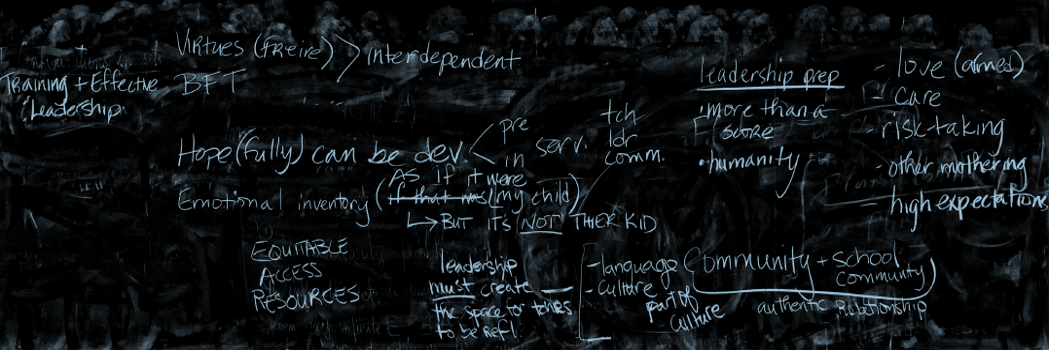After being exposed to these readings, I can now clearly articulate why just having an ethic of care does not necessarily translate into caring about students in ways that are transformative to student’s lived experiences: Many white educators lack empathy for Black students. The empathy gap can account for so much of the anti-Blackness that manifests on the individual and structural level, as these experiences pre-date the Antebellum period. What these works do, for me, is beg the question, how do we close the empathy gap for educators who come from mismatched communities than the students they serve? Like, how can we get (mostly white) educators to care about Black and Brown bodies in the educational arena and beyond?
The questions take me back to Sylvia Wynter’s (1994) NHI where she discusses “spheres of obligation” and ingroups and outgroups. She traces the genealogy of in and out groups, people who one group was obliged to be concerned about the welfare of, and groups who can be left behind or used or conquered. The work of BFTs is an empathic extension of Wynter’s argument, for BFTs see students as part of their “sphere of obligation.” The BFTs experiences with oppression and marginalization cause them to want more than student success in the classroom; it causes them to want to invest in students’ lives, like the principal who also acted as a social worker out of the office to better support her students and the communities in which those students reside.
I think we should do what Finland does, which would entail BLOWING UP our current educational industrial complex, by eliminating private and for-profit schools at the k-12 levels. Make all schools community schools. Provide all skills with the same resources. And bring students from the suburbs into urban communities so that suburban parents have to be invested in ensuring the success of the schools their kids live-in, and more importantly, so suburban parents are exposed to the conditions that affect urban school so that they can share in the experience of educational inequity. This process means the mostly white bosses don’t get to go to elite schools where they are separated from the mostly Black and Brown labor force. Having common experiences and exposure helps breed empathy.




I really enjoyed reading your post this week, Jordan! I agree that there is an empathy gap between white teachers and their students of color. I think the point you make about this being a result of the separateness of communities of color and white communities is really interesting. I love your suggestion that we need to blow up the education system and provide every school with the same resources. Communities and their schools shouldn’t be separated on racial and economic lines because it perpetuates the wealth gap in part due to a lack of connection and empathy.
Hey Jordan,
Thank you for sharing this. I took some time to read more about what Findland does in their educational system. I often lean towards revolutionizing systems so I would be down to do so. I want to read some more (and visit actually). This also makes me think about the Eurocentric ideas the United States still upholds while other countries within the EU have dismantled among themselves (or seemingly dismantled). Bell Hooks mentions this in her book “Teaching Community” (2002) the notion of blowing up the system or leaving it all together to remain whole.